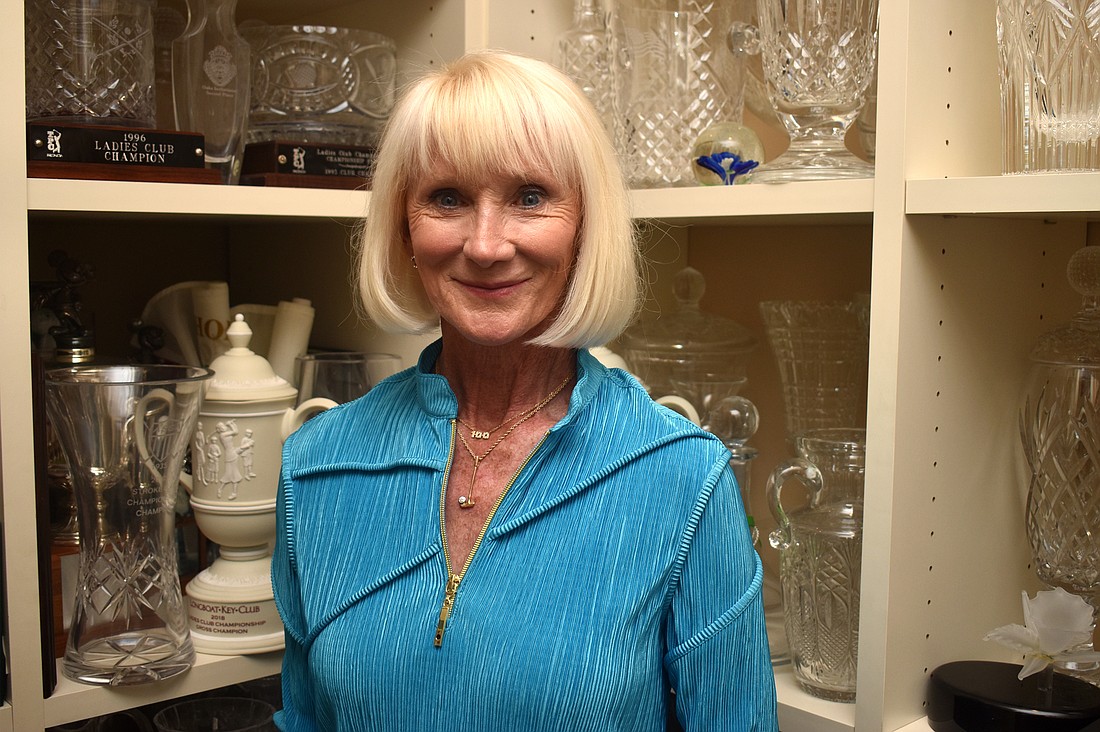- April 29, 2025
-
-
Loading

Loading

Arlene McKitrick loves pizza, pasta and bread. She loves golf, too.
One of these statements is not like the other, though. One of her passions doesn’t have a detrimental effect on her acute type 1 diabetes.
“I love pasta, I love bread, I love pizza,” she said. “[They’re] bad for me, and if I eat them I go sky high then because, dangerous [blood sugar levels] is 200, and I’ll be 300 and 400 blood sugar, and I’m walking into walls.”
In 1989, McKitrick had surgery that damaged her pancreas. In turn, her weight dropped to 86 pounds, she lost her vision and in January 1990 was diagnosed with advanced stages of acute type 1 diabetes.
McKitrick started playing golf when she was 30 at The Congressional Club near Washington, D.C. McKitrick tries to practice at least every other day. She didn’t want to, and never, gave up golf.
She prayed to God to let her live to win 100 golf tournaments. Her first victory was in 1979. She had 23 victories before her diagnosis. Ten years later, she reached her goal.
“I didn’t know how I did it,” she said. “That night, I was afraid to go to sleep. I said, ‘God, I’m not ready to go.’ I didn’t expect to win tournaments in 10 years.”
So, then she prayed to win 150 tournaments. Eight years later, she reached that goal. Now, McKitrick has won 240 tournaments.
“I just kept going,” she said. “It wasn’t the winning. It was about letting me live long enough to try to win. Otherwise, it would be so easy to give up and feel sorry for yourself.”
In 2000, McKitrick, who has since regained her vision, received her first insulin pump and it took her 10 years to get her weight to 100 pounds. But last year, her doctor said her diabetes was the worst it has ever been, and it was only a matter of time until her organs started to shut down.
Three weeks ago, McKitrick received an artificial pancreas after being on a waitlist where 40,000 people were ahead of her. The transmitter reads her blood sugar 88 times a day, and it reports data to her pump, which prevents her from having diabetic attacks.
She used to have those attacks every day, and yet, she continued playing golf — and winning.
“Sometimes life takes you in a direction, and people are brought into our life to be either a blessing or give us a lesson,” McKitrick said. “I think that maybe God has awarded me the ability to win these [tournaments] to be hopefully an inspiration to other people to never give up, that because you have a disease or a handicap doesn’t mean you have to lose your joyful life, doesn’t mean you have to give up.”
After 28 years living with the disease, McKitrick is thrilled with how good she feels with the artificial pump.
“It’s like the inside of my body is shouting, ‘I’m healthy!’” she said. “How did I ever win those tournaments when I felt really terrible?”
The answer can be found in McKitrick’s “attitude of gratitude.”
“Some of the things I have learned through my life is there’s a universal law of attraction, and we are all, like ABC, CBS and NBC, a frequency wave, and what you say comes your way,” McKitrick said. “What you act, you attract, and so if you want joy in your life, you have to feel joy, express joy so it comes back to you.”